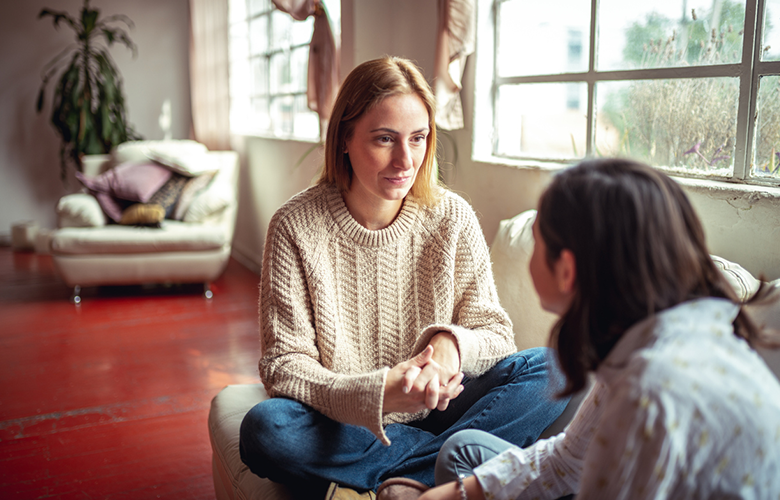
March 19, 2020
During the COVID-19 pandemic, people are experiencing a range of emotions—uncertainty, anxiety, distress. Children in particular are susceptible to fears during this time. Here are five strategies, adults can use to help children cope with anxieties:
- Listen: It’s human nature to assume that our children worry about the same things we do, and therefore to help them address our fears rather than theirs. Yet, our children might have their own worries: their grandparents’ health, not being able to see relatives who live far away, or when will they be able to resume their favorite activities. By listening first, we can more directly address their worries.
- Be aware of your own anxiety: Although we may not always realize it, children are adept at picking up adult anxieties. It is important that we speak to them with a calm and reassuring voice and reduce their exposure to adult conversations about the virus. It also helps to take care of our own anxieties. For tips, read “6 Ways to Stay Calm During Coronavirus.”
- Provide age-appropriate and accurate information: In a world where social media and COVID-19 coexist, misinformation is common. As adults, we need to counter misinformation by providing children with age-appropriate and accurate information. This also includes limiting their exposure to the news and our own speculations about the virus, such as who might have the virus or what restrictions we may expect next. For age-appropriate resources, see the National Association of School Psychologists and the Centers for Disease Control and Prevention.
- Focus on actions: An important coping mechanism for addressing any kind of stress is increasing what psychologists call the locus of control. The greater control we feel in our lives, the less worried we are about those things we cannot control. And with everything we are hearing from public health officials, we can do a lot to reduce the risk of contracting the virus. Emphasizing that message to our children (with accurate information!) will help them feel more in control and less worried.
- Provide structure: Another important strategy to help our children cope with the situation, particularly for children who are home due to school closures, is to build structure into their day. Much like they do in school on regular days, children and parents should plan a schedule with different activities. This can include taking virtual tours of museums, academically enriching activities, playing outside, and socializing with friends and relatives via phone or the Internet.
Through these steps we can help our children to better cope with these difficult times we are all experiencing.
| Shai Fuxman, a behavioral health expert and senior research scientist, leads initiatives that promote the positive development of youth. |

Comments
Add new comment